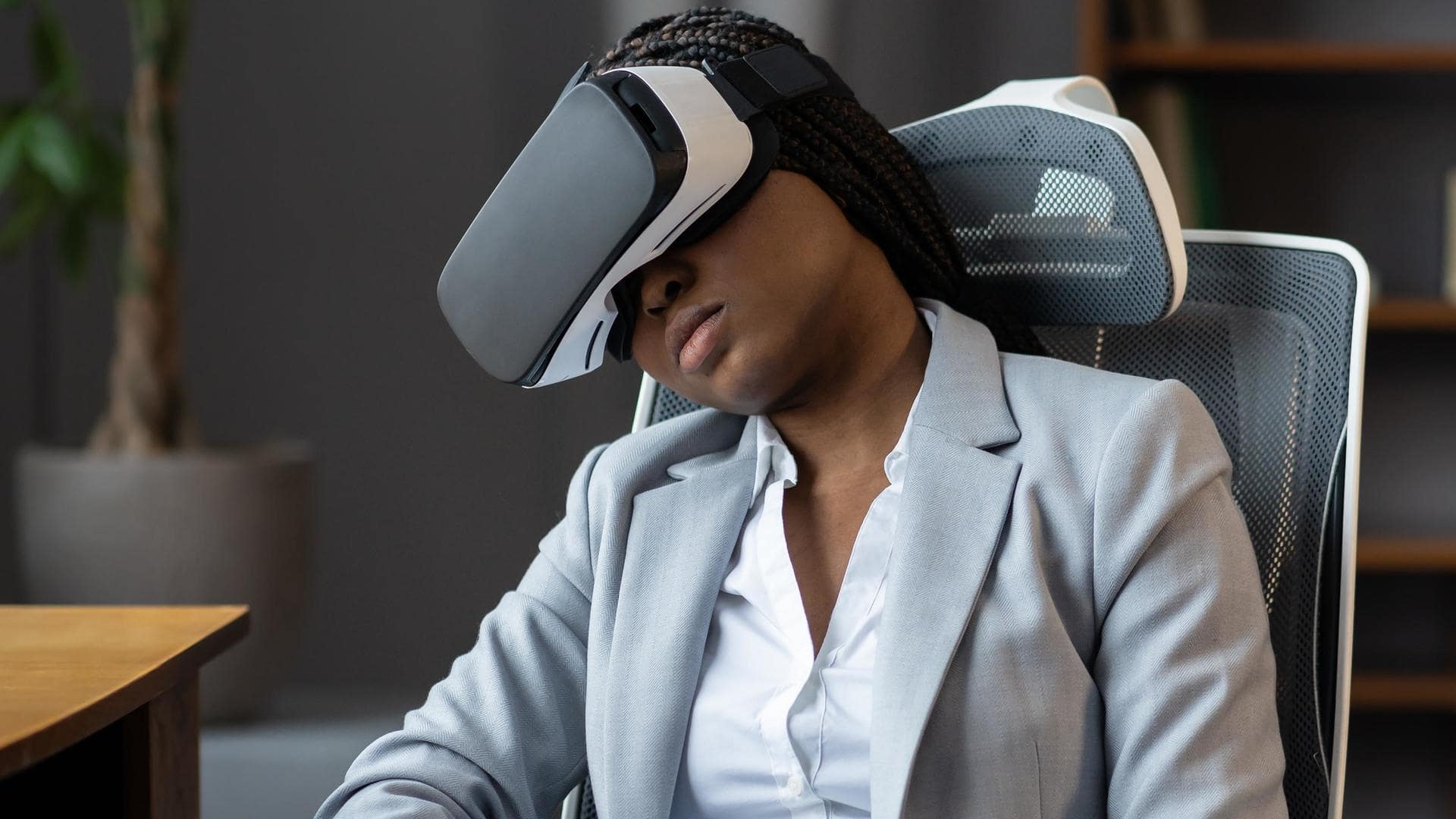
Cybersickness: Exploring its causes, symptoms, and possible treatments
What's the story
Do you feel a bit lightheaded, dizzy, or nauseous after scrolling on your laptop or phone screen for a while? Well, you may be suffering from cybersickness. It is on the rise as people are spending more time working on gadgets and scrolling through social media. From its causes and symptoms to possible treatments, let's find out more about this screentime-induced ailment.
Meaning
What is cybersickness?
Simply put, cybersickness is like having motion sickness without being in motion. Technically, the two situations are different but their result is the same. People who experience it can suffer for a few minutes to hours, depending on the intensity. Experts believe that everyday devices have a major role to play. The disease also has the potential to affect the quality of sleep.
Causes
What are the causes of this disease?
People can suffer from cybersickness by looking at TV screens, phones, and laptops. Government Executive reports that Apple released "a parallel effect on iPhone lock screens" in 2013 that made the wallpaper float. This, reportedly, made many users uncomfortable as they showed signs of cybersickness. Other causes may include a mismatch in the sensory system i.e. the communication between your eyes and the brain.
Information
Let's understand this more with the help of an example
Imagine looking at a moving wallpaper on your phone's screen. Now your eye may believe that it is moving but your vestibular system (inner ear senses) and proprioceptive system (sensory receptors) may tell your brain that it is steady. This contradiction leads to cybersickness.
Symptoms
What are the symptoms of this screentime-induced issue?
People with cybersickness can experience a host of symptoms. Some of the most common ones include headache, dizziness, nausea, lightheadedness, anxiety, digestive issues, fatigue, eyestrain, sleepiness, flushing, and sweating. You may feel the world around you is spinning or your eyes are feeling heavy. Dry eyes, blurry vision, balance problems, lower attention spans, irritability, and coordination issues are some more symptoms of this ailment.
Treatments
What to do if you often experience cybersickness?
To treat this condition, you can decrease your screen time, avoid working on multiple screens at a time, slow down your scrolling speed, refrain from having heavy foods before going back to the screen, and steer clear of using screens in a moving vehicle. Improving your sleep can also help. Some motion sickness medicines may work but seek a doctor for this before self-medicating.